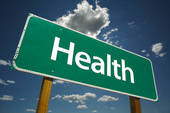 High-protein diets are generally well tolerated by healthy adults. But a dramatic increase in protein-rich foods may be dangerous for people with liver or kidney disease because they lack the ability to get rid of the waste products of protein metabolism.
High-protein diets are generally well tolerated by healthy adults. But a dramatic increase in protein-rich foods may be dangerous for people with liver or kidney disease because they lack the ability to get rid of the waste products of protein metabolism.Some protein is essential to human life. Protein is found in your bones, muscles, skin, organs, blood, hormones and enzymes.
Your body can't store excess protein. During digestion and metabolism, protein is broken down into amino acids — the building blocks of protein. Your body uses these amino acids to make enzymes and other proteins. But any "extra" amino acids are stripped of nitrogen. The non-nitrogen parts of amino acids are used for energy or converted into fat, and the remaining nitrogen is eventually excreted by your kidneys and liver. These waste products have been shown to cause kidney injury, and in the presence of liver disease, excess nitrogen can cause further problems. High-protein diets may also increase the risk of kidney stones and osteoporosis. If you have kidney or liver disease or any chronic health condition, talk to your doctor before starting a new diet.





No comments:
Post a Comment